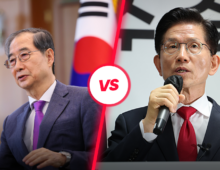New President Yoon Suk-yeol seeks to boost domestic production to shield against future supply chain shocks
Semiconductors serve as the lifeblood of most advanced economies, enabling high-tech goods such as mobile devices, computers, household appliances and automobiles. Prior to COVID-19, powerful countries penned policies that would allow them to procure a larger market share of semiconductor production in recognition of their accelerating importance.
Now, amid an unremitting supply chain crisis, nations are revisiting their approaches. Overarching endeavors such as Made in China or Make in India, through which Beijing and New Delhi funnel hundreds of billions of dollars into their semiconductor industries, reflect the belief that reshoring is critical.
Semiconductors serve as the lifeblood of most advanced economies, enabling high-tech goods such as mobile devices, computers, household appliances and automobiles. Prior to COVID-19, powerful countries penned policies that would allow them to procure a larger market share of semiconductor production in recognition of their accelerating importance.
Now, amid an unremitting supply chain crisis, nations are revisiting their approaches. Overarching endeavors such as Made in China or Make in India, through which Beijing and New Delhi funnel hundreds of billions of dollars into their semiconductor industries, reflect the belief that reshoring is critical.
Get your
KoreaPro
subscription today!
Unlock article access by becoming a KOREA PRO member today!
Unlock your access
to all our features.
Standard Annual plan includes:
-
Receive full archive access, full suite of newsletter products
-
Month in Review via email and the KOREA PRO website
-
Exclusive invites and priority access to member events
-
One year of access to NK News and NK News podcast
There are three plans available:
Lite, Standard and
Premium.
Explore which would be
the best one for you.
Explore membership options
© Korea Risk Group. All rights reserved.
No part of this content may be reproduced, distributed, or used for
commercial purposes without prior written permission from Korea Risk
Group.











